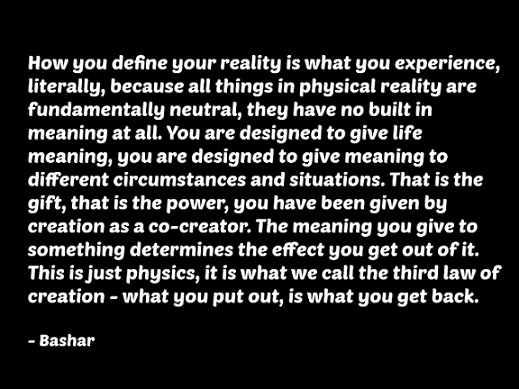Metaphysics
Is Metaphysics Spiritual? Exploring the Boundaries Between Philosophy and the Transcendent.

The question of whether metaphysics is spiritual touches upon the very roots of human inquiry, our desire to understand reality, existence, and meaning.
At first glance, metaphysics and spirituality may appear to occupy different realms: one grounded in philosophical reasoning, the other in personal faith or religious experience.
Yet a closer examination reveals a deep and enduring entanglement between the two. While metaphysics is traditionally defined as the branch of philosophy that investigates the fundamental nature of reality, being, time, causality, substance, and possibility, its concerns often extend beyond the empirical, venturing into domains that many associate with the spiritual. This raises a crucial question: Is metaphysics inherently spiritual, or can it remain a strictly rational, secular pursuit?

To answer this, we must first distinguish between metaphysics as a formal discipline and the spiritual impulse it often evokes. Classical metaphysics, as practiced by thinkers from Aristotle to Kant, seeks to understand what is, independent of sensory experience. It asks: What is the nature of existence? Do objects have essences? Is there a necessary being underlying all contingent things? These questions do not presuppose a deity or a soul, nor do they require belief in the supernatural. In this sense, metaphysics can be pursued as a logical and analytical endeavor, akin to mathematics or theoretical physics.
However, the moment metaphysics confronts the limits of human knowledge, when it grapples with the origin of the universe, the nature of consciousness, or the possibility of immortality, it inevitably brushes against spiritual territory. Consider the concept of being itself, a central theme in the works of philosophers like Heidegger and Aquinas.
To contemplate being as such is not merely an intellectual exercise; it can evoke a sense of awe, mystery, or even reverence, emotions traditionally associated with the spiritual. In this light, metaphysics may not be spiritual in doctrine, but it can become a spiritual experience, a form of contemplation that transcends the material and connects the thinker to something greater.

Moreover, many spiritual traditions incorporate metaphysical frameworks. In Hindu philosophy, for instance, Brahman, the ultimate, unchanging reality, is a metaphysical concept that is also deeply spiritual. Similarly, in Neoplatonism, the One serves as both a metaphysical first principle and an object of mystical union.
These systems demonstrate that metaphysics and spirituality are not mutually exclusive; rather, they can be mutually reinforcing. The metaphysical provides structure to the spiritual, while the spiritual infuses metaphysics with meaning and existential weight.
Yet one might argue that this conflation risks undermining the rigor of metaphysical inquiry. If metaphysics becomes too entangled with spiritual beliefs, it may lose its critical, questioning character and devolve into dogma.
The history of philosophy is replete with examples where metaphysical speculation was used to justify religious orthodoxy or metaphysical systems that resisted falsification. A truly open metaphysics, some contend, must remain neutral, neither affirming nor denying the spiritual, but simply exploring the conditions of possibility for reality as we experience it.

Nonetheless, neutrality may be an illusion. All metaphysical systems rest on unprovable assumptions, about the uniformity of nature, the reliability of reason, or the existence of an external world. These axioms, while not spiritual in content, often carry a quasi-spiritual significance. They reflect a deep human need for coherence, order, and ultimate grounding. In this sense, metaphysics, even at its most austere, participates in a spiritual quest: the search for a stable foundation in a universe that often appears chaotic and indifferent.
Ultimately, whether metaphysics is spiritual depends on how we define both terms. If "spiritual" means adherence to religious doctrine or belief in the soul, then metaphysics need not be spiritual. But if "spiritual" refers to a profound engagement with the mystery of existence, a yearning to understand our place in the whole, then metaphysics is spiritual at its core. It is not the spirituality of ritual or revelation, but of wonder, reflection, and the relentless pursuit of truth.
In an age dominated by empirical science and technological pragmatism, metaphysics offers a space for contemplation that transcends utility. It invites us not just to know, but to wonder. And in that wonder, quiet, persistent, and humbling, lies a form of spirituality all its own.

Doctrine Outside Of Human Sense Perception
Metaphysics involves concepts that go beyond physics, in other words, examining areas of reality that can not be perceived through the five senses. When a person looks at the study of metaphysics, one recognizes that there are many levels of mind that need to be coordinated in order to bring about a physical materialization in the material world. Metaphysics recognizes that the mind is a field of energy and that whatever is physically manifested in life is also a field of energy. In addition, metaphysics recognizes there is no separation of energy fields between the energy of the mind and all other energy fields that materialize in the physical universe.
Metaphysics
Metaphysics further recognizes the energy field of the mind can connect with other energy fields to alter or change the energy of already existing materializations. Metaphysics perceives that the mind on a surface level projects forth from itself into physical manifestation what it believes and focuses on over a period of time. In other words, the practice of metaphysics recognizes a magnetic draw--that whatever is filled in consciousness on a daily basis be it positive or negative, is attracting more of the same by drawing from the unseen energies at work beyond the five senses.
Like attracts like according to the principles of metaphysics, so the key is to focus upon what it is that you want to manifest in life, not on what you want to avoid. Realize that through your application of metaphysics, the higher power within will assist you in physical materialization if you are tuned into your higher powers soul's purpose in this lifetime. When applying the concepts of metaphysics, accept that all levels and energies of your mind are in a working process for physical materialization.
We Are Helping 1000 Businesses Amplify Their Online Presence
Realize this truth, although we can not see various sources of energy like electricity, radio and cellular waves, we use these every day in our lives. The energy associated with metaphysics is the original source of all energy and similarly, can be used for physical manifestation.
The Secret To Getting What You Want
InternetBusinessIdeas-Viralmarketing Home Page
Tweet
Follow @Charlesfrize









